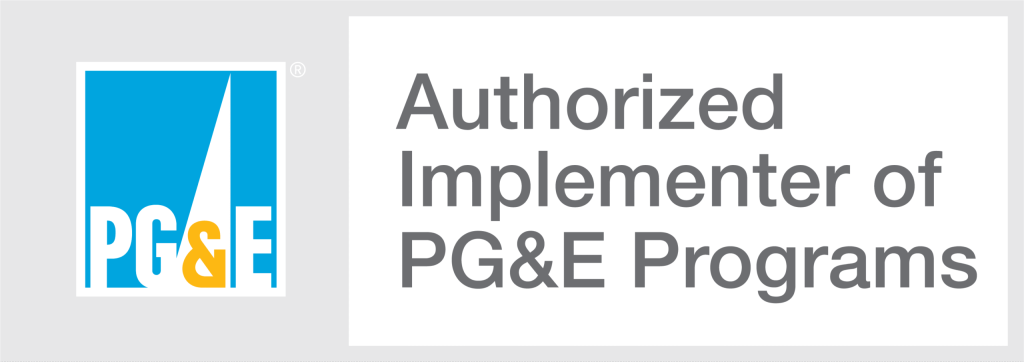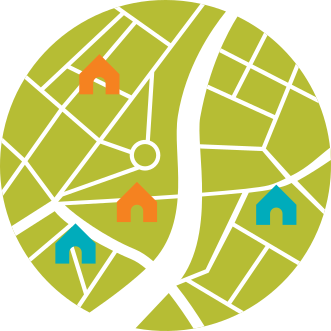
Join the Empower My Home program, which helps households enjoy a more comfortable, energy-efficient home by switching from
natural gas appliances to modern alternatives for no to low cost.
Check your eligibility and then complete an online home energy assessment with our partner, Maiven Energy.
Review and approve the project plan that details the customized upgrades for your home or business. A contractor will visit and confirm your scope of work before the project begins.
Get your new home upgrades and start saving. Note: Some homes may not be eligible due to remediation requirements. See our FAQ for details.

The program is available for customers in select areas who meet income qualifications. Check your eligibility here.
The Empower My Home program offers modern, all-electric appliances for your home, and depending on your
household income, could be completely free. Check your income below to see what you qualify for.
| Number of persons in household | Total gross annual household income* |
|---|---|
| 1 | $39,125 or less |
| 2 | $52,875 or less |
| 3 | $66,625 or less |
| 4 | $80,375 or less |
| 5 | $94,125 or less |
| 6 | $107,875 or less |
| 7 | $121,625 or less |
| 8 | $135,375 or less |
| Each additional person, add | $13,750 |
| Number of persons in household | Total gross annual household income* |
|---|---|
| 1 | $62,600 or less |
| 2 | $84,600 or less |
| 3 | $106,600 or less |
| 4 | $128,600 or less |
| 5 | $150,600 or less |
| 6 | $172,600 or less |
| 7 | $194,600 or less |
| 8 | $216,600 or less |
| Each additional person, add | $22,000 |
For reduced-cost home upgrades, PG&E will cover:

New electric appliances can
help make your home more
comfortable, use less energy, and
are better for the environment.

Empower My Home is a new program to help homes switch from gas (or other fuels) to electric appliances. It’s paid for by ratepayer, state, and local funds as well as supported by PG&E. If you qualify, residents can get new, modern, energy-efficient electric appliances at little or no cost.
Customers who meet income qualifications in select areas can join. Apply today to see if you qualify.
If you prefer an in-person assessment with a contractor, contact us us at 341-223-8333 or info@empower-myhome.com to schedule a time.]
After you take the survey, you’ll get a simple plan to show what improvements your home can get, like an induction stove, heat pump (for heating and cooling), water heater, insulation, duct sealing, and electrical panel upgrades.
[A contractor will do a walk-through of your home before installation. If your home has safety concerns that need to be addressed before upgrades can commence, we will flag those at the contractor visit. ]
All home upgrades for residential customers are free.
Some or all of your neighbors will need to join our program before installation occurs because everyone must agree to their equipment upgrades before work can start. After you review and approve your project plan, all other eligible homes and buildings in your area must do the same before any work can begin.
Renters: Your landlord will need to sign off on the project first, but we can help you talk to them—just email us at [email protected]. You can also fill out the interest form and home energy survey to help show your landlord the benefits.
If you live in apartment building or house with 4 or fewer units in the program area, you can join. To get started, fill out the interest form online. Once we confirm your eligibility, we will contact you to discuss next steps.
We’ll need to talk to your landlord. You can help us contact them, or we can contact them for you. We make this easy for you!
It depends on your home’s needs, but the program offers:
These installers are also familiar with energy and money saving programs such as the also work with other programs including the PG&E Energy Savings Assistance (ESA) Program. Program inspectors will verify that the installer’s work is properly completed and that all systems function as intended.
The installer will choose high-quality appliances that follow our program rules. All new equipment will meet the program’s high efficiency standards. You can ask questions about these choices with your installer and discuss other options.
All appliances come with a one-year guarantee (a one-year warranty on labor and materials). If something breaks, your installer will fix it for free of charge within that time.
Some homes may need additional work before upgrades can begin. Common examples include outdated wiring (such as knob and tube), asbestos, or obstacles that make it difficult to safely access appliances or key areas of the home.
If your contractor encounters one of these conditions, they’ll explain what’s needed and evaluate whether your project can move forward. In some cases, work may be paused or canceled depending on the scope and safety considerations.
Please note that abatement or repairs—such as asbestos removal, wiring replacement, or structural modifications—are not covered by the Powerful Neighborhoods program. Homeowners are responsible for addressing these issues before the planned upgrades can proceed.
Each situation is evaluated on a case-by-case basis, and there’s no guarantee a project can continue if these conditions are present.
Converting your home to all electric appliances (electrification) means replacing gas-power equipment with electric ones. Sometimes we replace other fossil fuels, too, like coal, oil, or propane. In order to electrify everything at your home, we’ll replace any machine that currently burns fossil fuels — your furnace, water heater, kitchen stove, clothes dryer, and gas fireplaces. In some cases, we will upgrade your electrical panels.
Going electric can reduce energy use and costs, improve comfort, and create a healthy, more sustainable environment for homes, businesses, and communities.
Induction stoves heat food faster and offer better temperature control compared to gas and electric resistance stoves. They are also easier to clean, safer to touch, and make kitchens more modern and efficient. The cooktop surface doesn’t get very hot, so there’s less chance of getting burned, and there’s no open flame.
They heat super-fast and can be accurately controlled—so not only are induction stoves better for the environment than gas stoves, but they work better, too.
Induction stoves are up to 90% energy efficient, while electric resistant stoves are 75% and gas stoves are 40% energy efficient. That means with induction, almost none of the cooking heat gets wasted.
Gas or electric stovetops transfer heat into your pots and pans. While some of that heat goes into your food, the rest goes into your kitchen. Induction burners create heat directly in the pot or pan. That means it can keep your kitchen cooler and safer.
Yes, but many, if not all of your pots and pans already work! If a magnet sticks to your pot, it works on an induction stove. Cast iron pans usually work great. Plus we’ll provide you with new pots and pans!
A heat pump heats your home in winter and cools it in summer. It moves warm air around, using less energy than regular heaters or air conditioners.
It’s a single electric appliance that replaces both your traditional air conditioner and home heating system (like a furnace or boiler).
In cooling mode, a heat pump acts like an air conditioner, moving the heat from inside your home to the outside.
In heating mode, heat pumps go into reverse-mode and pump heat from the air outside your home to the inside.
Heat pumps use less energy and save money on your energy bill. They keep your home comfortable year-round.
Heat pumps can reduce your heating electricity use by about 50% compared to electric resistance heating such as furnaces.
PG&E’s residential customers can save up to about 20% by switching from gas to a highly efficient electric heat pump technology for space and water heating*
*Disclaimer: This estimate is based on an analysis using the Fixed Charge Design and Bill Impacts Model prepared for California Public Utilities Commission (CPUC) by Energy Environmental Economics (E3), Inc. in April 2023. It considers customers transitioning from Time-of-Use to Electric Home rate plan. The potential savings will vary depending on the customer’s location, energy use, enrollment in PG&E programs, and current rates in effect.
It’s a water heater that heats water using heat from the air around it (even when it’s cold out). It uses much less energy than regular water heaters.
They are similar to heat pumps for space heating, except they produce hot water instead of hot air. In other words, they use electricity to pull heat from the surrounding air and move it into a hot water tank.
Heat pump water heaters use about 70% less energy than standard water heaters, saving you money on your energy bill. They are 3 to 4 times more efficient than standard water heaters and work everywhere!
It’s a dryer that concentrates warm air from outside the dryer to dry your clothes gently. It saves energy by reusing and dehumidifying warm air.
A heat pump dryer also dries laundry at low temperatures, so installation is easier because ventilation is not required.
These dryers save about 28% more energy than regular dryers and are more gentle on clothes.
Weatherization reduces the amount of energy needed to heat and cool your home. It can involve sealing and insulating your home to save energy and keep you more comfortable. You can save an average of 15% on heating and cooling costs.
Your home gets its electricity from powerlines (and the electric grid) through your electrical panel. It’s sometimes called a breaker box, load center, or distribution center, but it’s a box in your home that controls your electricity. Older homes may need an upgrade when switching to electric appliances. Learn more about that here, and we’re always here to help.
Check out our community toolkit! You’ll find shareable content in English, Spanish and Traditional Chinese. This includes social media posts with graphics to learn more about the program or an event, plus newsletter and blog copy.